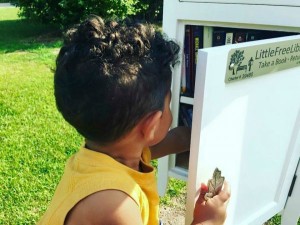Here’s how to cultivate a giving Spirit in your children.
Kids benefit in many ways from learning to be generous and caring about others. Researchers have found that empathy is the cornerstone for becoming a happy well-adjusted, successful adult.  Studies show that possessing empathy also makes children more likable, more employable, better leaders and more conscience-driven. It even increases their lifespan. The best news is that empathy can be cultivated, and some of the best empathy generators are service projects to help kids step out of their comfort zones, open their eyes and expose them to others lives.
Studies show that possessing empathy also makes children more likable, more employable, better leaders and more conscience-driven. It even increases their lifespan. The best news is that empathy can be cultivated, and some of the best empathy generators are service projects to help kids step out of their comfort zones, open their eyes and expose them to others lives.
Here are 10 simple tips:
1. Prioritize Caring: Most teens value academic achievements and individual happiness over caring for others. Their reason for this? Kids believe that’s what adults value. Prioritize charitableness in your family chats. Be clear that you expect your children not only to do their academic best, but to care about others. display photos of your kids engaged in thoughtful endevours, rater than just showcasing their school successes, athletic prowess or having them look cute on camera.
2. Be a charitable role model: The old saying “Children learn what they live,” has a lot of truth to it. Studies show if parents or generous and giving, kids are likely to adopt those qualities. So show your child the joy you get by giving. There are so many daily opportunities: phoning a friend who is down, feeding and collecting blankets for the homeless, volunteering at the food bank. After volunteering, be sure to tell your child how good it made you feel.
4. Acknowledge Charitableness: whenever your child acts in a kind-hearted way say so: Thank them for being kind or helping out. Also, let your kids overhear (without them thinking they are supposed to) you describing caring qualities to others.
5. Use real events: Instead of just bemoaning bad news, talk about how you may help in the local community. It could be donating items to help after a publicized fire, or thinking about ways to assist the most vulnerable like the homeless during winter. You can start at home too, such as teaching them to be there for a family member who is going through a hard time.
6. Start a “giving plan”: Encourage your child to give a portion of their allowances to a charity of their choice. provide three plastic containers for younger kids or envelope for teens that are labeled “saved,”spend” and “give.” Then help them to decide which percentage of their money is to be allocated to each container.
7. Find your child’s passion: Kids are more likely to want to get involved in service projects that match their interests. Help your kids choose something they are good at and enjoy doing. If he loves reading, read to the blind; enjoys writing, be a pen pal to an oversees orphan; like sports volunteer for the Special Olympics. You get the idea.
8. Make charity a family affair: Find a service to do together, like serving in a soup kitchen. If your child enjoys volunteering with friends ask if they would like to do there project with friends. Or they can form a club with neighbors, classmates members of a scout or church group.
9. Recap their impact: Research has found that children who are given the opportunity to help others tend to become more helpful, especially if the impact of their actions is pointed out. So encourage your child to reflect on their volunteering experience: “What did the person do when you helped? How do you think they felt? How did you fell?” Remind your kids that their caring efforts are making a difference.
10. Keep giving: A once a year day of volunteering is rarely enough for a child to adopt a charitable mindset. Look for ways to help your children experience the joy of giving on a regular basis: baking an extra batch of cookies for the lonely neighbor next door, adopting an orphan overseas (a portion of their allowance each week goes to that child),singing at a nursing home to add a little joy. The goal in getting kids involved in charity is not about winning the Nobel Peace Prize, but to give them the opportunity to experience goodness.

